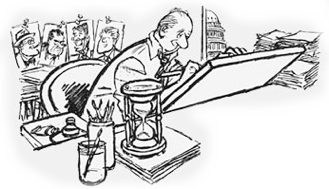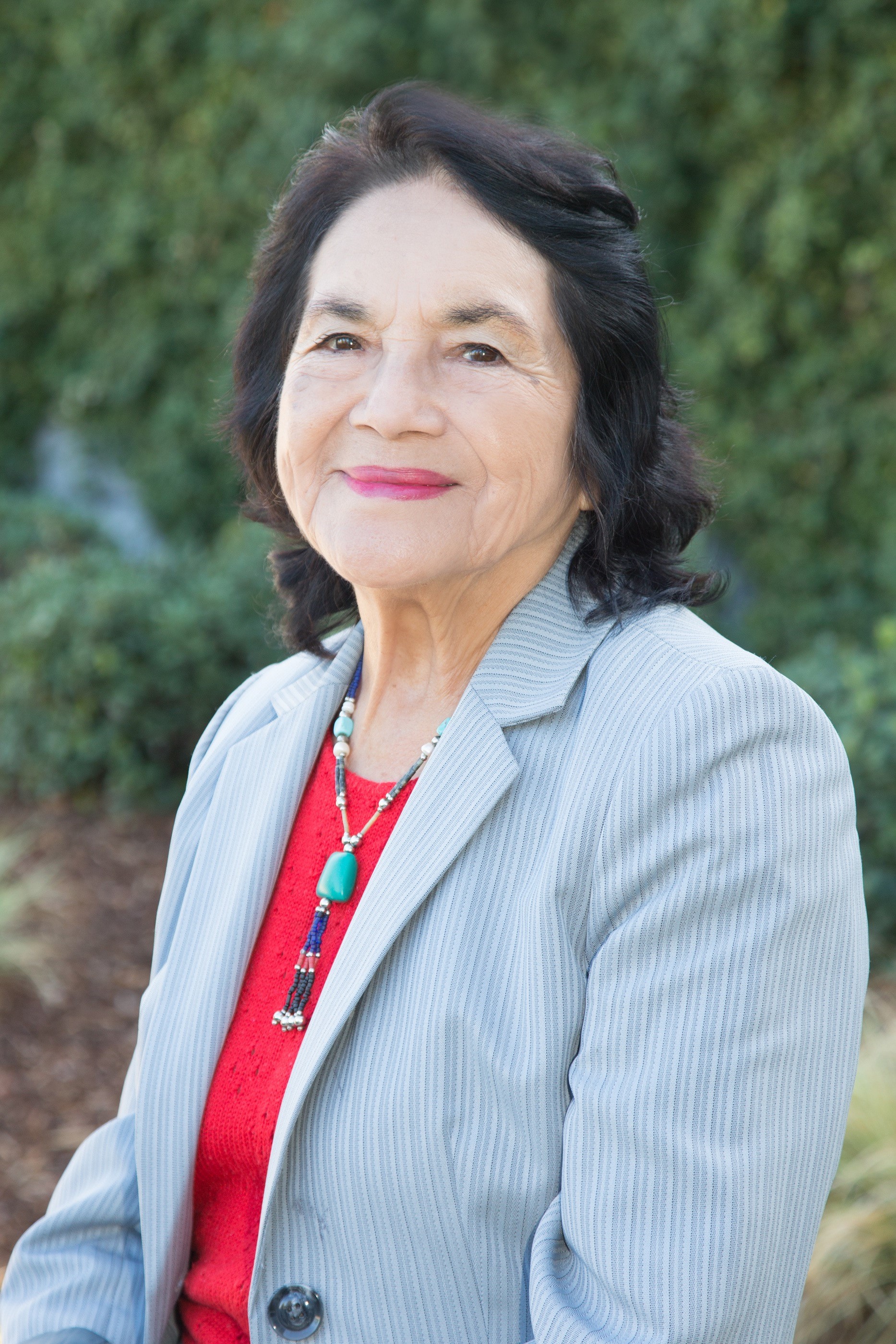Dolores Huerta shattered gender and racial barriers to become one of the most significant American labor leaders and civil rights activists, spearheading some of the most important social movements in our nation's history. Now, at 95 years old with a lifetime of advocacy behind her, Huerta continues to champion the rights of the underrepresented through her work with the Dolores Huerta Foundation based in Bakersfield, California.
Growing up in Stockton, California, Huerta was inspired by her mother’s compassion for workers and community activism. As an elementary school teacher, she witnessed farmworker families' poor living conditions and lack of resources. She met legendary organizer Fred Ross Sr., who taught her that people can improve their lives by working together and taking collective action. She became a volunteer activist with the Stockton chapter of the Community Service Organization (CSO). In CSO she met like-minded Cesar Chavez.
In 1962, she and Chávez established the National Farm Workers Association, which later became the United Farm Workers Union (UFW). They organized the 1965 UFW Delano grape strike of over 5,000 workers and a worldwide grape boycott that won basic human rights like decent working conditions, potable water, rest periods, bathrooms, and the right for union representation. She overcame gender and racial bias to serve as the lead negotiator for workers' contracts, which banned toxic pesticides, gained safer working conditions, and a health plan.
Throughout her activism, Huerta was arrested 22 times in nonviolent protests. In 1988, while protesting against harmful pesticides, she was severely beaten by police, suffering broken ribs. This led to reforms in the San Francisco Police Department’s crowd control and discipline policies.
Her activism has continually advanced the civil rights of all marginalized groups including women and the LGBTQ+ community. In the 1990s she traveled across the country for the Feminist Majority’s Feminization of Power: 50/50 by the Year 2000 Campaign, which contributed to a significant increase in the number of women representatives at local, state, and federal levels. She is also credited with coining the slogan “¡Sí, Se Puede! - “Yes, We/I can!”. Huerta was awarded The Eleanor Roosevelt Human Rights Award from President Clinton in 1998. In 2012, she was awarded the Presidential Medal of Freedom from President Obama.
 Herb Block is among the world’s best known and most admired political cartoonists. Born on October 13, 1909, the native Chicagoan spent his 72-year career fighting against abuses of the powerful.
Herb Block is among the world’s best known and most admired political cartoonists. Born on October 13, 1909, the native Chicagoan spent his 72-year career fighting against abuses of the powerful.
